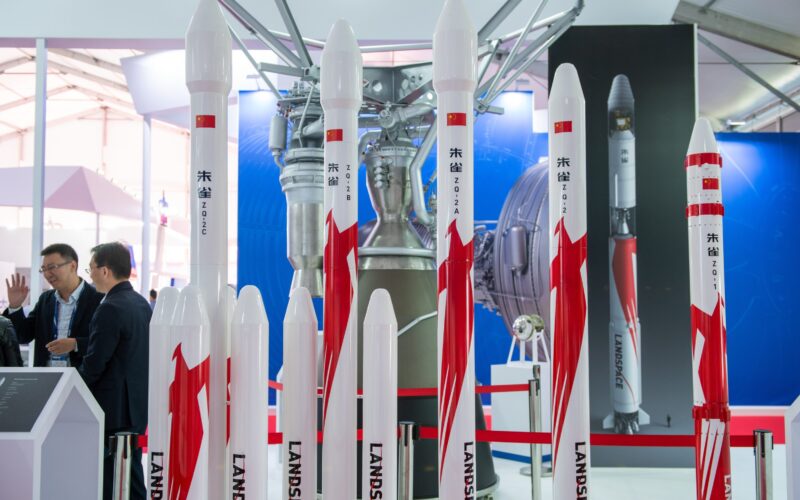Beijing-based startup LandSpace launched the world’s first methane-liquid oxygen space rocket into orbit on July 12, 2023. The rocket successfully delivered a test payload into a sun-synchronous orbit (SSO).
This launch positions China ahead of global competitors such as SpaceX and Blue Origin in the race to develop less polluting, safer, and more cost-effective reusable rockets powered by methane.
The Zhuque-2 rocket, launched from the Jiuquan Satellite Launch Center in the northwestern Gobi Desert at 9 am local time, is the largest private rocket in China.
Standing at 49.5 meters with a diameter of 3.35 meters it boasts impressive specifications similar to Long March-series rockets. Its main propulsion system, TQ-12, is the first methane engine developed in China.
It was the second attempt by LandSpace to launch the Zhuque-2 after the first ended in failure in December 2022.
China also revealed plans to dispatch two rockets to the Moon by 2030. One of these rockets will transport a spacecraft designed to land on the lunar surface, while the other will carry astronauts.
“To achieve this goal, designers and engineers are developing the Long March 10 rocket model. The rocket will have three and a half stages and will have a liftoff weight of about 2,200 metric tons, capable of sending a 27-ton spacecraft to the lunar transfer orbit,” Zhang Hailian, deputy chief planner at the China Manned Space Agency, said during a space industry forum in Wuhan, China.

